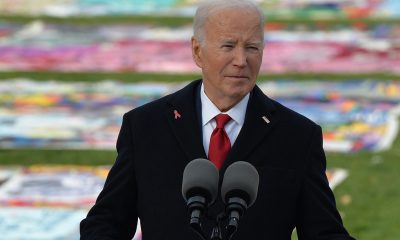World
Out in the World: LGBTQ news from Europe and Asia
Tbilisi Pride in Georgia has cancelled all physical Pride events this year

GEORGIA
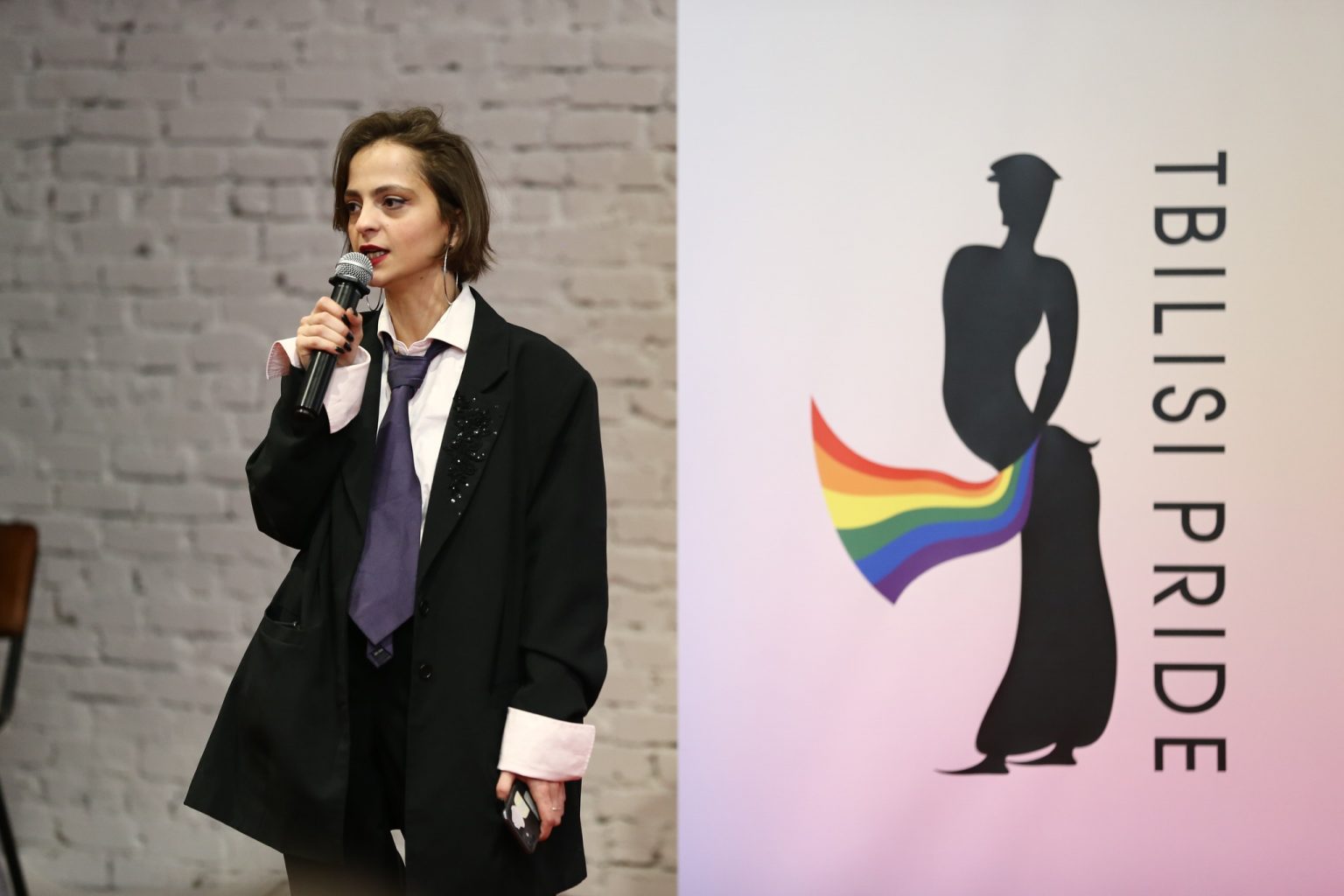
The organization that holds Pride events in the Georgian capital Tbilisi has announced it is cancelling all physical Pride festivities this year, in light of an increasingly hostile environment promoted by the Georgian government ahead of elections this fall.
Tbilisi Pride says in a statement posted to Facebook that they will focus their efforts instead on reaching hearts and minds, with a hope of defeating the government and ending restrictive legislation in the October election.
“We anticipated that the summer before the 2024 parliamentary elections would be filled with physical violence encouraged by the government and rhetoric filled with hate and hostility,” the statement says.
“Now, after ‘Georgian Dream’ adopted the Russian-style law on ‘foreign agents’ and announced a hate-based anti-LGBTQ legislative package alongside constitutional changes, we are even more confident in our decision. We are demonstrating the highest civic responsibility and recognize that the fight for queer rights today is inseparable from the broader people’s struggle against the Russian-style regime. This fight will inevitably end in favor of the people on Oct. 26!
We will use the coming months to bring the message of queer people to more hearts than ever before! We will explain to everyone that homophobia is a Russian political weapon against Georgian society, against the statehood of Georgia! We are patriots of this country and will always and everywhere be where our homeland calls us!”
The U.S. government slapped visa restrictions on members of the Georgian government in response to actions taken to undermine democracy in the post-Soviet nation, just as the government announced a sweeping package of anti-LGBTQ legislation it intends to pass ahead of fall elections.
State Department spokesperson Matthew Miller told a June 6 press conference in Washington that the government had slapped sanctions on “between two and three dozen” individuals who were “responsible for or complicit in undermining democracy in Georgia, such as by undermining freedoms of peaceful assembly and association, violently attacking peaceful protestors, intimidating civil society representatives, and deliberately spreading disinformation at the direction of the Georgian government.”
Citing U.S. privacy law, Miller refused to name any individuals who had been sanctioned. He added that this was considered a “first tranche” of sanctions.
Georgia has been rocked with protests for weeks in response to the “foreign agents” law, which requires media and civil society groups to registers as agents of a foreign power if they receive funding from abroad.
The law was passed by the ruling Georgian Dream Party, vetoed by the president who is a member of the opposition, and then passed with a veto override on May 28.
Modeled after a similar law in Russia, the law is meant to undermine the credibility and actions of bodies that are critical of the government and has drawn fierce criticism from Georgia’s allies in the U.S. and European Union.
Georgia was recognized as a candidate country from EU membership this year, but EU leaders have warned that the law undermines European values and threatens membership negotiations.
At the same time, the Georgian government has introduced a package of anti-LGBTQ legislation also modeled after Russian laws, which it is hoping will fire up its base and divide the opposition ahead of fall elections.
Under the package of laws, the state would be forbidden from recognizing any relationship other than heterosexual relationships, restrict adoption to married heterosexual couples and heterosexual individuals, ban any medical treatment to change a person’s gender and require that the government only recognize gender based on a person’s genetic information, and ban any expression or organization promoting same-sex relationships or gender change.
The bills are meant to be introduced in parliament before the end of the summer session in July, and the government plans to hold a vote on it ahead of elections scheduled for October.
POLAND AND LITHUANIA
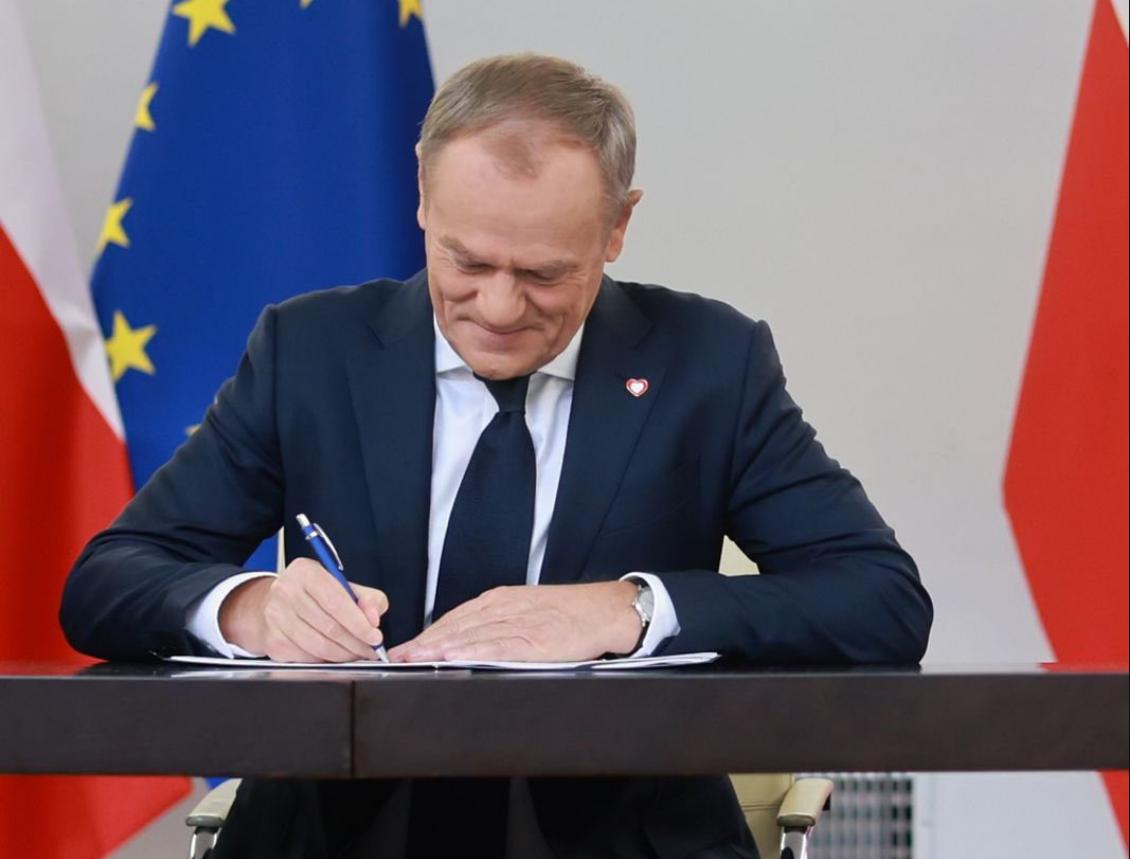
Bitter fights are emerging over civil union legislation in the governing coalitions that run Poland and Lithuania, with left-leaning parties insisting on improving the legal rights of LGBTQ couples and families, while more conservative parties want to maintain the status quo.
In Poland, that’s led to protracted negotiations to get a draft civil unions bill introduced, long after Prime Minister Donald Tusk’s original promise to have the law in place within his first hundred days in office. Tusk was sworn in as prime minister in December.
Tusk’s coalition includes his own centrist Civic Platform party, as well as the left-leaning Left party, and the more conservative Poland 2050 and Polish People’s Party (PSL), the latter of which mostly opposes recognizing same-sex couples. The coalition agreement left out any mention of civil unions.
The ambitious civil union bill aims to be an “all-but-marriage” type of union, complete with adoption rights, which has drawn the ire of the PSL. Negotiations within the coalition have focused on finding a way to get the PSL on board but have so far proved fruitless.
The opposition parties are even more hostile to LGBTQ rights and are not expected to support the bill in any form.
Regardless, Equalities Minister Katarzyna Kotula, who comes from the Left party and has been spearheading the bill, has given the coalition a deadline of the end of June to come to agreement. Failing that, she says she’ll introduce the bill without government support, although that will likely doom it to fail.
A last-ditch negotiation among the coalition partners is expected to take place June 17.
Tusk has struggled to introduce other promised social reforms since taking office. A promised hate crimes and hate speech bill has yet to be introduced. In March, the president, who comes from the conservative opposition Law and Justice Party, vetoed a bill to legalize the morning-after contraception pill.
Duda has not yet revealed if he will veto a civil union bill. The coalition does not have a three-fifths majority in parliament to override a veto.
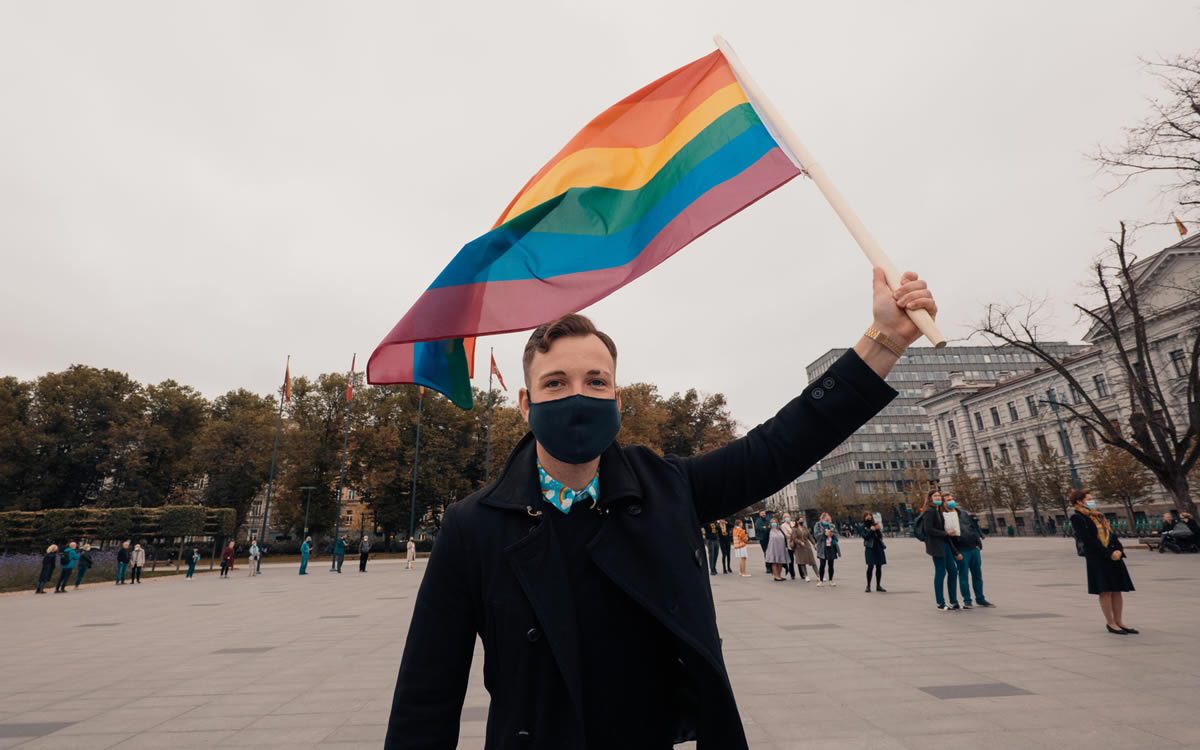
In neighboring Lithuania, tensions over a long-stalled civil union bill erupted into a dispute between coalition partners this week.
The left-leaning Freedom Party has threatened not to support the nomination of Foreign Affairs Minister Gabrielias Landsbergis to the post of European commissioner, given his party’s lack of support for the civil union bill that awaits a third a final vote in parliament.
The dispute has spilled a lot of ink in Lithuanian press, with the coalition partners debating whether or not the threat was appropriate in the circumstances.
Lithuania heads to the polls in October for parliamentary elections.
GREECE
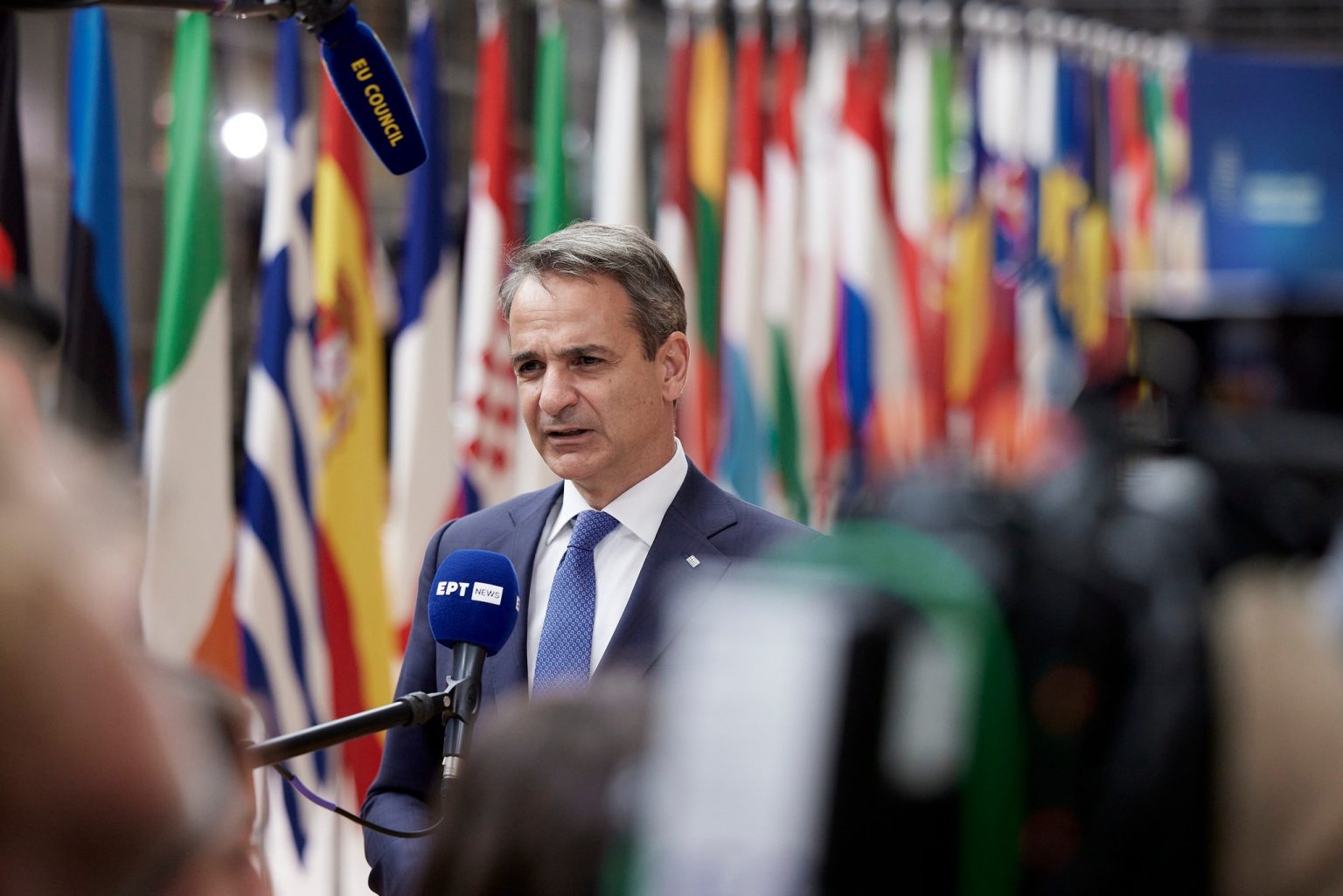
After his party took a drubbing in EU elections last weekend, Greek Prime Minister Kyriakos Mitsotakis says he is going to pause pushing forward new LGBTQ rights legislation, suggesting the new priority is changing minds rather than laws.
Mitsotakis announced his surprise support for same-sex marriage and adoption rights last year after clinching reelection, and his government passed a marriage bill in February.
But in last week’s EU elections, his party’s support dropped nearly five percentage points, while the more radical far-right Greek Solution and the anti-LGBTQ conservative NIKI party collectively gained about 10 percentage points.
Mitsotakis himself speculated to Bloomberg TV that the new same-sex marriage and adoption law passed this year alienated his party’s traditionally conservative base.
Greece is already one of the highest-scoring countries on ILGA-Europe’s Rainbow Map Index, thanks in large part to reforms that Mitsotakis himself ushered in. In addition to same-sex marriage and adoption, his government has banned conversion therapy, banned unnecessary surgeries on intersex children, and set up a National Strategy for the Equality of LGBTQI+ People.
Queer activists in Greece were still calling on the government to facilitate legal surrogacy and automatic parental recognition for same-sex couples, and a simplified process for transgender people to update their legal gender.
FRANCE
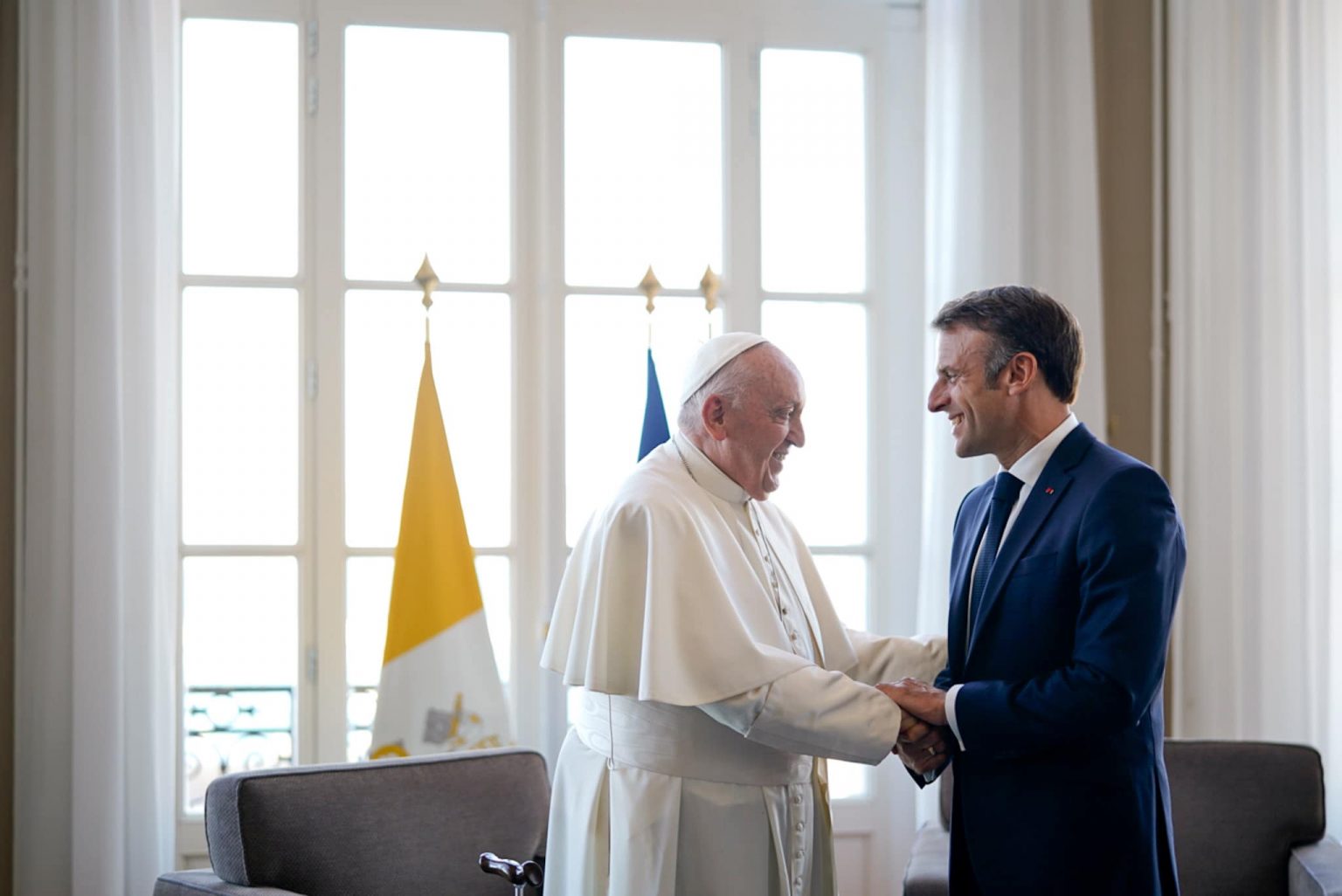
The far-right National Rally party is campaigning on restricting LGBTQ rights in snap parliamentary elections, with prime minister candidate Jordan Bardella supporting restrictions on surrogacy and IVF for same-sex couples.
French President Emmanuel Macron announced snap parliamentary elections after his party’s poor showing in the European Parliamentary elections last weekend. National Rally won the most votes in that election and is polling strongly ahead of the June 30 first-round vote. However, French elections are run in a two-round system, and National Rally often fails to win second-round votes as voters coalesce around a less unappealing compromise candidate to block them.
In the past, National Rally has campaigned strongly against LGBTQ rights, especially same-sex marriage, but they appear to have conceded that marriage equality is settled law.
While campaigning ahead of the EU elections, Bardella appeared on the French television show “Le Grand Oral”, where he reiterated his opposition to surrogacy.
Bardella also bitterly opposed Macron’s 2019 law which finally allowed lesbians to have access to in-vitro fertilization.
He told local television at the time, “There is no right to having children. Children have a right to have a father and a mother and this law creates children without fathers.”
National Rally’s opposition to same-sex parenting mirrors that of Italy’s far-right Prime Minister Giorgia Meloni, under whose watch the Italian government has stripped parental recognition from same-sex couples and imposed criminal penalties on Italians who conceive children via surrogacy.
The first week of the truncated election has taken a number of surprising turns. The mainstream right-wing party, the Republicans, has been in turmoil since its president announced his party would consider a coalition with the National Rally, which led party members to oust him and an embarrassing schism where he barricaded himself in the party headquarters and took over the party’s social media.
And in a bit of news that may be a little on-the-nose, the National Rally has nominated a man named Guillaume Bigot as their candidate in Belfort in northeastern France.
PAKISTAN
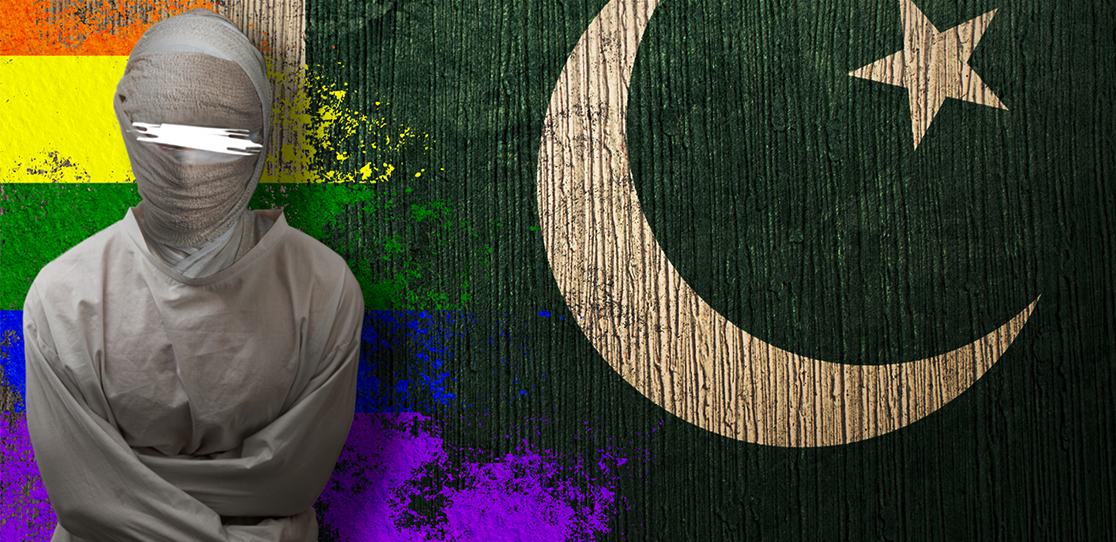
A Pakistani man was apparently committed to a mental hospital after he attempted to open a gay bar in Abbottabad, Pakistan, this month.
The man, whose identity has not been disclosed, had apparently hoped to open the country’s first gay bar in the city of 250,000 people, about 75 miles north of Islamabad.
Abbottabad is best known in the west as the city where Osama bin Laden was found and killed by U.S. Forces in 2011.
According to the Telegraph newspaper, the man had applied to open “Lorenzo Gay Club,” which he described in his application to civic authorities for a “No Objection Certificate” as a “great convenience and resource for many homosexual, bisexual and even some heterosexual people residing in Abbottabad in particular, and in other parts of the country in general.”
The application, dated May 8, also insisted that “there would be no gay (or non-gay) sex (other than kissing)” and that a notice would be posted on the wall to warn against “sex on premises.”
The applicant describes the club as “a matter of the basic human right of free association, as established in the constitution.”
Gay sex is illegal in Pakistan, which is an officially Islamic republic. A conviction would carry up to two years in prison, but the law is rarely applied as it is difficult for anyone to be openly gay in the strictly conservative country.
The application sparked considerable debate online, after a copy of the application was released to the local media. The application seen in the “Pakistan Observer” is signed by a Preetum Giani, but it is not clear if that is the applicant or a representative.
According to the Telegraph, the man was committed to the Sarhad Hospital for Psychiatric Diseases in Peshawar on May 9, and friends have been unable to reach him since. Friends who spoke to the newspaper say they are worried about his safety, but also worried for their own safety if they speak out.
The Telegraph also reports that far-right politicians in Pakistan had threatened violence and arson against the club if it had been allowed to open.
The applicant had previously told the paper that he believed it was important to stand for human rights, and that he would defend the right to open the club in the courts, in hopes that Pakistan’s courts would follow neighboring India’s lead, where gay sex was decriminalized in 2018.
SINGAPORE
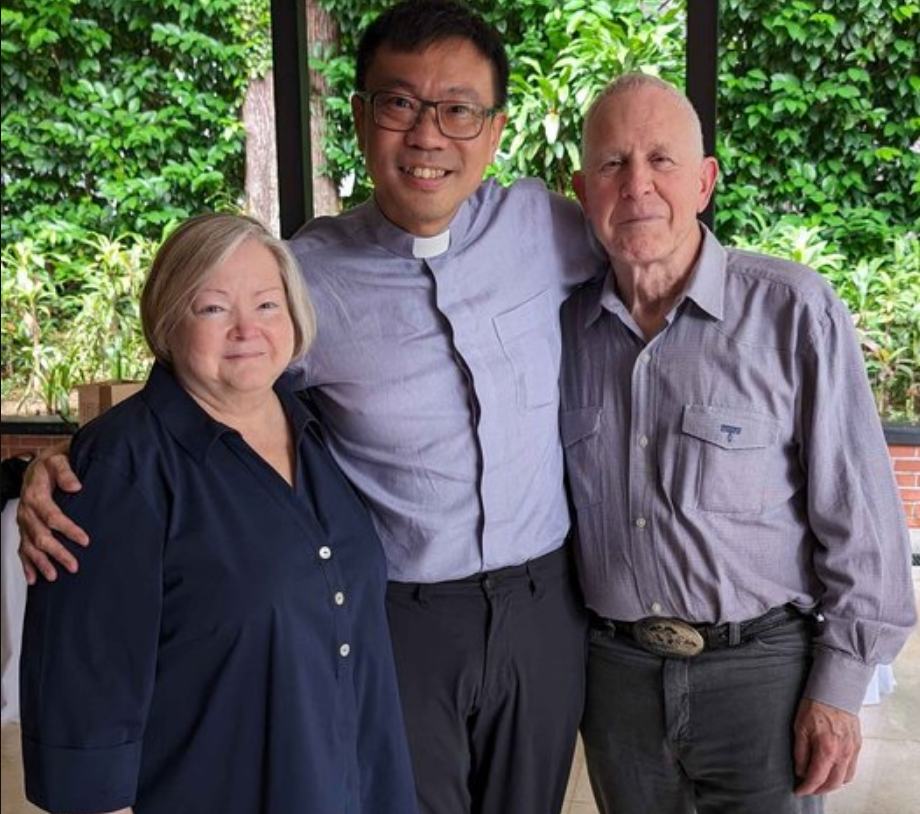
A new Ipsos poll has revealed a slight majority of Singaporeans support laws banning anti-LGBTQ discrimination, and support legal recognition of same-sex couples and adoption.
The poll found that 54 percent of respondents agreed that same-sex couples should have the right to marry, and 57 percent agree they should have the right to adopt, compared to only 25 percent who oppose same-sex marriage and 30 percent who oppose same-sex couple adoption rights.
On both questions, a large number of respondents were unsure or had no opinion.
An even larger number of respondents supported anti-discrimination protections for LGBTQ people. Nearly three-quarters of respondents said that LGBTQ people should have discrimination protections in employment and housing, although only 40 percent supported legislation to that effect, while 20 percent opposed it, and another 40 percent were unsure.
There are no specific anti-discrimination laws protecting LGBTQ people in Singapore.
The poll found strongest support for LGBTQ rights among younger respondents as compared to older generations.
Two years ago, Singapore repealed a colonial-era law that criminalized gay sex. But at the same-time, parliament also amended the constitution to require parliamentary approval for same-sex marriage.
These poll numbers may indicate that eventual legalization could be possible.
Russia
Russia designates ILGA World an ‘undesirable’ group
Justice Ministry announced designation on Jan. 21
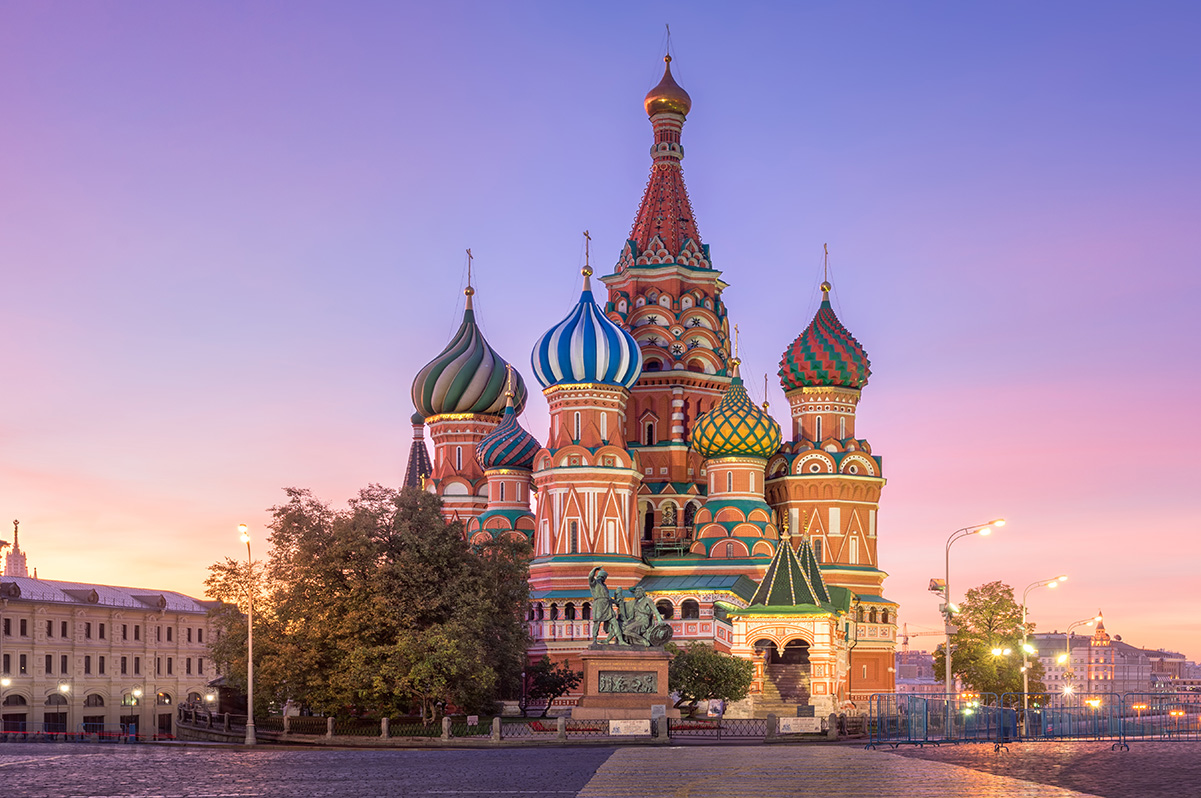
Russia has designated a global LGBTQ and intersex rights group as an “undesirable” organization.
ILGA World in a press release notes the country’s Justice Ministry announced the designation on its website on Jan. 21.
The ministry’s website on Tuesday appeared to be down when the Washington Blade tried to access it. ILGA World in its press release said the designation — “which also reportedly includes eight other organizations from the United States and across Europe” — “has been confirmed by independent sources.”
“ILGA World received no direct communication of the designation, whose official reasons are not known,” said ILGA World.
The Kremlin over the last decade has faced global criticism over its crackdown on LGBTQ rights.
ILGA World notes Russians found guilty of engaging with “undesirable” groups could face up to six years in prison. The Russian Supreme Court in 2023 ruled the “international LGBT movement” is an extremist organization and banned it.
“Designating human rights groups ‘undesirable’ is outlandish and cynical, yet here we are,” said ILGA World Executive Director Julia Ehrt. “But no matter how much governments will try to legislate LGBTI people out of existence, movements will stay strong and committed, and solidarity remains alive across borders. And together, we will continue building a more just world for everyone.”
Honduras
Corte IDH reconoce a Thalía Rodríguez como familia social de Leonela Zelaya
Se construyeron una familia tras más de una década de convivencia
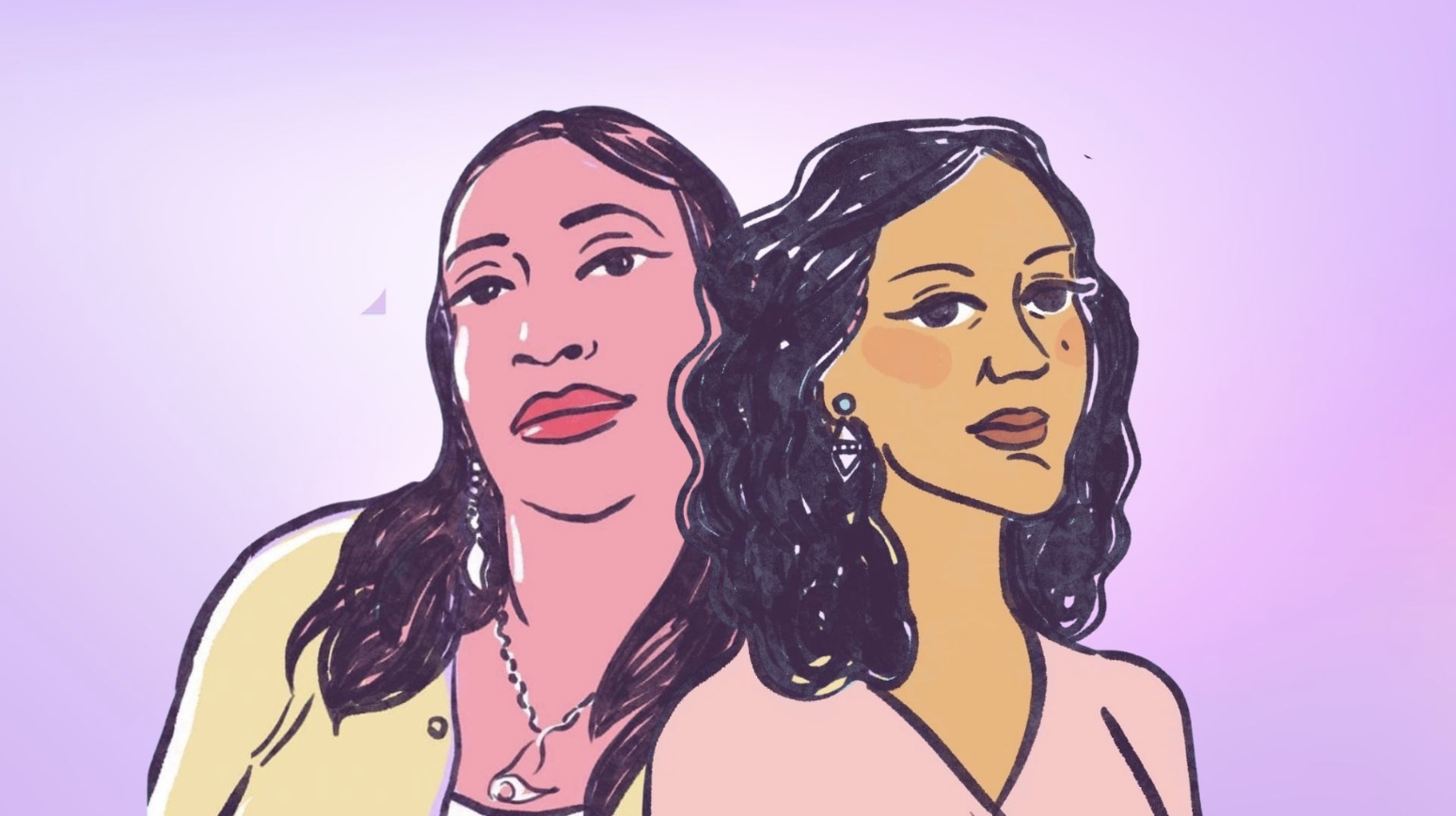
Por DORIS GONZÁLEZ * | TEGUCIGALPA, Honduras — En la sentencia del caso Leonela Zelaya y otra vs Honduras emitida por la Corte Interamericana de Derechos Humanos se estableció un hito jurisprudencial para las personas LGBTQ en Honduras, así como en la región en relación a las diversas conformaciones de familias existentes. La Corte IDH interpretó por primera vez el concepto de familia social, indicando que la construcción de familia no debe restringirse a la familia nuclear o a nociones tradicionales, bajo el entendido de que hay diferentes formas en las que se materializan los vínculos familiares.
Este análisis se trae a colación debido al contexto de discriminación, prejuicio y violencia que atravesamos las personas LGBTQ, el cual se puede manifestar incluso dentro de nuestras propias familias. Esta violencia se manifiesta a través de actos de odio como ser el desarraigo familiar, violencia física, psicológica, social, económica, expulsiones de los hogares, violaciones correctivas e incluso, culminando en muertes violentas. Esta violencia motivada por la orientación sexual, identidad y expresión de género de las personas imposibilita la convivencia familiar.
Ante esto, las personas LGBTQ construimos vínculos sociales fuera del vínculo familiar tradicional, los cuales a través de la convivencia, amistad, apoyo económico-social y construcción de vida en común constituyen familias, tal como ocurrió en este caso.
Tras el abandono de su familia biológica, Leonela Zelaya y Thalía Rodríguez construyeron una familia tras más de una década de convivencia, en los cuales se apoyaron mutuamente en diversas situaciones, viviendo como mujeres trans, portadoras de VIH, ejerciendo el trabajo sexual y en situación de pobreza, enfrentando constantes episodios de detenciones arbitrarias y violentas por parte de los órganos policiales.
Tras su asesinato, fue Thalía quien recogió el cuerpo de Leonela en la morgue de Tegucigalpa y quien gestionó el féretro a través de la Funeraria del Pueblo. Los servicios fúnebres de Leonela Zelaya fueron realizados en un bar por mujeres trans, trabajadoras sexuales, al cual no asistió ningún miembro de su familia biológica.
El asesinato de Leonela y la falta de esclarecimiento generaron a Thalía un sentimiento de inseguridad, frustración e impotencia. Por estas violaciones de derechos humanos, la Corte reconoció a Thalía Rodríguez, en calidad de familiar de Leonela, como víctima del caso, generando estándares aplicables a todas las personas LGBTQ.
A juicio de la Corte, esta situación lleva a que, en casos de muertes violentas de mujeres trans, las personas que integren las redes de apoyo de la persona fallecida puedan ser declaradas víctimas por la violación de sus derechos a la integridad psíquica o moral, siempre que se acredite la existencia de un vínculo estrecho con la víctima y una afectación a sus derechos, derivada, por ejemplo, de las gestiones realizadas para obtener justicia. Esta sentencia logra reconocer que las personas LGBTQ construimos familias sociales, familias elegidas, e indica que estas deben ser reconocidas y validadas.
* Abogada litigante del caso Leonela Zelaya y otra vs Honduras, Red Lésbica Cattrachas
Uganda
LGBTQ Ugandans targeted ahead of country’s elections
President Yoweri Museveni won 7th term in disputed Jan. 15 vote

Barely a week after Ugandan President Yoweri Museveni secured a 7th term in an election marred by state violence, intimidation, and allegations of fraud, the country’s queer community spoke about how the election environment impacted it.
The LGBTQ lobby groups who spoke with the Washington Blade noted that, besides government institutions’ failure to create a safe and inclusive environment for civic participation by all Ugandans, authorities weaponized the Anti-Homosexuality Act to silence dissent and discourage queer voter engagement.
The rights groups note that candidates aligned with Museveni’s ruling National Resistance Movement — including Parliament Speaker Anita Among — during the campaigns accused their rivals of “promoting homosexuality” to discredit them while wooing conservative voters.
Queer people and LGBTQ rights organizations as a result were largely excluded from the formal political processes for the election as voters, mobilizers, or civic actors due to fear of exposure, stigma, violence, and legal reprisals.
“This homophobic rhetoric fueled public hostility and emboldened vigilante violence, forcing many queer Ugandans into deeper hiding during the election period,” Uganda Minority Shelters Consortium Coordinator John Grace stated.
Some queer people had expressed an interest in running for local council seats, but none of them formally registered as candidates or campaigned openly because of safety concerns and local electoral bodies’ discriminatory vetting of candidates.
“UMSC documented at least three incidents of election-related violence or intimidation targeting LGBTQ+ individuals and activists,” Grace noted. “These included harassment, arbitrary detentions, extortions by state and non-state actors, digital cat-fishing, and threats of outing.”
Amid such a militarized and repressive election environment, Let’s Walk Uganda Executive Director Edward Mutebi noted queer-led and allied organizations engaged in the election process through restricted informal voter education, community discussions, and documenting human rights violations.
“Fear of backlash limited visibility and direct participation throughout the election cycle,” Mutebi said. “But despite the hostile environment of work, Let’s Walk Uganda was able to organize a successful transgender and gender diverse youth training on electoral security and safety.”
Museveni’s government escalated its repressive actions during the Jan. 15 elections by shutting down the internet and suspending nine civil society organizations, including Chapter Four Uganda and the National Coalition of Human Rights Defenders, for allegedly engaging in activities that are prejudicial to the security and laws of the country.
The suspension of the rights organizations remains in force, an action both Mutebi and Grace condemn. They say it prevents queer Ugandans from accessing urgent services from the affected groups.
“For the LGBTQ community, the impact has been immediate and deeply harmful. Many of the suspended organizations, like Chapter Four Uganda, were critical partners in providing legal representation, emergency response, and documentation of rights violations,” Grace said.
This has compelled UMSC and its other partners to handle increased caseloads with limited resources, while navigating heightened scrutiny and operational risk.
“The suspension has disrupted referral pathways, delayed urgent interventions, and weakened collective advocacy for marginalized groups and minority rights defenders, which calls for urgent international solidarity, flexible funding, and protection mechanisms to safeguard the work of grassroots organizations operating under threat,” Grace stated.
Mutebi warned that such repressive actions are tyrannical and are indicative of shrinking civic space, which undermines democratic accountability as the promotion and protection of human rights is ignored.
With Museveni, 81, extending his tenure at State House from a landslide win of 72 percent, UMSC and LWU consider a bleak future in the protection of rights for queer Ugandans and other minority groups.
“Without significant political and legal shifts, LGBTQ persons will face continued criminalization, reduced civic space, and heightened insecurity, making sustained advocacy and international solidarity more critical than ever,” Mutebi said. “ It is unimaginable how it feels to live in a country with no hope.”
Grace, however, affirmed the resistance by local queer lobby groups will continue through underground networks, regional solidarity, and digital organizing.
The duo noted that a win by Museveni’s main challenger and rapper, Bobi Wine, who only managed 24 percent of the total votes cast, could have enabled the opening up of civil space and human rights protections in Uganda.
Wine, for his part, spoke in favor of the respect for the rule of law and human rights during his campaign.
“While Bobi Wine’s past stance on LGBTQ rights was inconsistent, his recent shift toward more inclusive rhetoric and international engagement suggested a potential opening for dialogue,” Grace said. “A win might have created space for policy reform or at least reduced state-sponsored homophobia, though structural change would still require sustained pressure and coalition-building.”
Mutebi stated that a change in Uganda’s leadership to a youthful leader like Wine could have offered an opening, but not a guarantee for progress on inclusion and human rights. Mutebi added existing institutionalized and societal homophobia remain in place.





